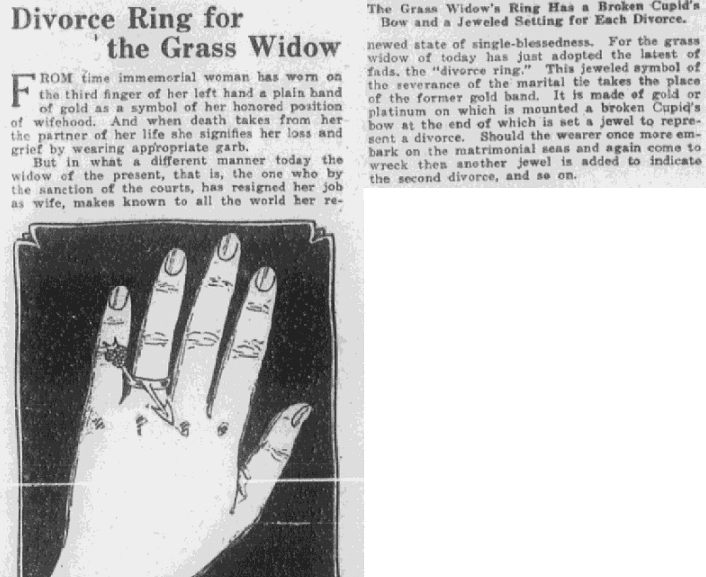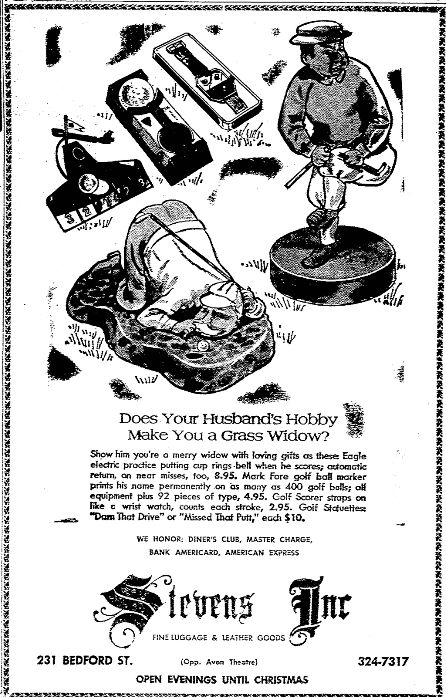Introduction: In this article, Gena Philibert-Ortega explains what a “grass widow” is – a term genealogists run across in their research. Gena is a genealogist and author of the book “From the Family Kitchen.”
Were any of your female ancestors a widow during their lifetime? Considering a female ancestor’s life as a widow is important because widowhood results in records, including military or work pensions, based on their husband’s service. But historically, the term “widow” does not just refer to women whose husbands have died.
Who Is a Widow?
A widow is someone whose husband is deceased. That’s probably obvious to you. But what is a “grass widow”? While some people may be familiar with its 19th century American meaning, the term can be found in Europe much earlier: the phrase grass widow has been around since the 16th century.
If you come across the term grass widow for a 19th or 20th century female ancestor in the United States of America, it refers to a woman who is temporarily separated from her husband. This separation may be related to work, military service, or (around 1849) it was due to the California Gold Rush. Women whose husbands left to find their fortune, even if it was temporary, might also have been referred to as a grass widow or a “California widow.”
Historically, many women have lived apart from their husbands for long periods of time because of immigration, military service, war, or an occupation like whaling, that required lengthy travels. In addition, some women found themselves separated from their husbands due to his abandonment of the family. Similar to a death, the grass widow’s husband’s absence may be documented in records such as the census, occupational records, and the newspaper.
So how old is this term grass widow? It’s believed to go back to at least the 16th century in England and referred to a woman with a child who did not have a husband, nor had a husband when the child was conceived. Similarly, a word meaning “straw bride” has been found in a German document from the 1300s. This word referred to women who lived with a man before marriage. (1) According to Merriam-Webster, a grass widow can also mean a discarded mistress (first used in 1528), or a woman who is divorced or separated. (2)
In old newspapers can be found references to the term “grass” coming from the French and meaning “grace” – meaning she is a “courtesy widow.” However, according to Oxford University Press, this is incorrect. (3)
So why the use of the word “grass”? Scholars have debated that origin and you can learn more about it in the Oxford University Press blog post Grass Widows and Straw Men. One idea behind the use of the word “grass” is that it refers to where one would lie down to take part in indiscretions. It also may refer to the straw wreath young German women were forced to wear at their wedding which served as a visual reminder of their indiscretion. (4)
Grass Widows in the Newspaper
It’s not unusual to see the term grass widow in old newspapers, such as GenealogyBank’s Historical Newspaper Archives – and as time goes on, historical newspapers refer to divorcees as grass widows in very unkind terms. This 1922 illustrated newspaper article suggests that grass widows should wear a ring to signify their divorce, differing from the one they wore as wives.

Although you’re unlikely to find someone today casually refer to a woman as a grass widow in print, you can find these references in newspapers into the late 20th century. This 1970 celebrity gossip column refers to a woman not by name – but as a grass widow.

Today’s football widows were yesterday’s golf grass widows. While language changes over time, it’s interesting that the idea of men focusing on other pursuits, thus causing them to be either physically or emotionally absent, still causes women to be referred to as “widows.”

Who Was the Grass Widow in Your Family Tree?
Is it important to know that great-grandma was a grass widow? Yes – knowing about a husband’s absence can lead to additional records or provide you with clues to explore her life. One of my paternal great-grandmothers was a grass widow while her husband was serving in the U.S. Navy in the 1920s. One of those years, she is the one listed in their hometown city directory with her occupation, something that would not be listed if he had been at home.
As you explore possible records created because of her husband’s absence, whether intentional or due to death, consider the time period and what the absence of a husband (and possibly his income) could mean to a family. Did she work during this time? Did she move in with family who could support her?
Don’t forget that anytime you see someone referred to as a widow, you need to “kill off” her spouse before taking it as a fact, meaning you need to verify the information with proof of his death found in documents such as a death certificate, a pension, or an obituary.
________________
(1) “Grass Widows and Straw Men,” Oxford University Press Blog (https://blog.oup.com/2009/02/grasswidows/: accessed 18 July 2019).
(2) “Grass Widow,” Merriam-Webster (https://www.merriam-webster.com/dictionary/grass%20widow: accessed 18 July 2019).
(3) “Grass Widows and Straw Men,” Oxford University Press Blog (https://blog.oup.com/2009/02/grasswidows/: accessed 18 July 2019).
(4) Ibid.
